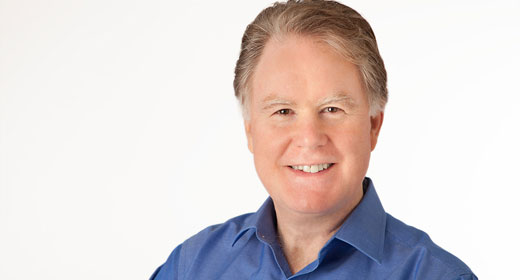by Judy Woodruff: And now to another in our Brief But Spectacular series…

Tonight, we hear from inventor and futurist Ray Kurzweil about immortality and the exponential growth of technology. Since 2012, Kurzweil has been a director of engineering at Google.
RAY KURZWEIL, Director of Engineering, Google: Our immediate reaction to death is that it’s a tragedy. And that’s really the correct reaction.
We have rationalized it, saying, oh, that tragic thing that’s looming, that’s actually a good thing. But now we can actually seriously talk about a scenario where we will be able to extend our longevity indefinitely.
I decided to become an inventor when I was 5. I would bring back broken bicycles, radios. This was an era where you would allow a 5-year-old to roam the neighborhood and do this. And I had this idea, if I could just figure out how to put all these things together, I could solve any problem.
I wrote a program that could recognize the patterns in melodies from famous composers and write original music. So I went on this show “I’ve Got a Secret” hosted by Steve Allen.
My name is Raymond Kurzweil, and I’m from Queens, New York.
STEVE ALLEN, Host: Queens, New.
RAY KURZWEIL: And my secret was, I had built and programmed a computer that composed music.
I created a program that could recognize printed letters in any type and created a reading machine for the blind.
Probably, the most important theme I have talked about is the exponential growth of information technology. Price, performance, and capacity of information technology progresses predictably and exponentially. It doubles every period of time.
So, this little computer is actually billions of times more powerful per dollar than the computer I used when I was an undergraduate. We will do that again in the next 25 years. And we will have computers the size of blood cells, little robotic devices that can go through our bloodstream, its capability thousands or millions-fold by connecting to the cloud. That’s a 2030s scenario.
We have been expanding our life expectancy for thousands of years. It was 19 1,000 years ago, 37 in 1800. We’re going to get to a point 10, 15 years from now where we’re adding more time than is going by to our remaining life expectancy.
People say, oh, I don’t want to live past 90, but, you know, I talk to 90-year-olds, and they definitely want to live to 91 and to 100. People sometimes say that death gives meaning to life because it makes time short, but, actually, death is a great robber of meaning, of relationships, of knowledge.
We’re going to be able to overcome disease and aging. Most of our thinking will be nonbiological. That will be backed up, so part of it gets wipes away, you can recreate it. And we will be able to extend our lives indefinitely. I would rather use that word than forever.
My name is Ray Kurzweil, and this is my Brief But Spectacular take on our exponential future.









































